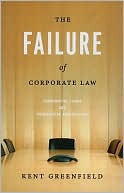Category Books
- Fiction Books & Literature
- Graphic Novels
- Horror
- Mystery & Crime
- Poetry
- Romance Books
- Science Fiction & Fantasy
- Thrillers
- Westerns
- Ages 0-2
- Ages 3-5
- Ages 6-8
- Ages 9-12
- Teens
- Children's Books
- African Americans
- Antiques & Collectibles
- Art, Architecture & Photography
- Bibles & Bible Studies
- Biography
- Business Books
- Christianity
- Computer Books & Technology Books
- Cookbooks, Food & Wine
- Crafts & Hobbies Books
- Education & Teaching
- Engineering
- Entertainment
- Foreign Languages
- Game Books
- Gay & Lesbian
- Health Books, Diet & Fitness Books
- History
- Home & Garden
- Humor Books
- Judaism & Judaica
- Law
- Medical Books
- New Age & Spirituality
- Nonfiction
- Parenting & Family
- Pets
- Philosophy
- Political Books & Current Events Books
- Psychology & Psychotherapy
- Reference
- Religion Books
- Science & Nature
- Self Improvement
- Sex & Relationships
- Social Sciences
- Sports & Adventure
- Study Guides & Test Prep
- Travel
- True Crime
- Weddings
- Women's Studies
The Failure of Corporate Law: Fundamental Flaws and Progressive Possibilities »

Authors: Kent Greenfield
ISBN-13: 9780226306940, ISBN-10: 0226306941
Format: Paperback
Publisher: University of Chicago Press
Date Published: September 2010
Edition: (Non-applicable)
Author Biography: Kent Greenfield
Kent Greenfield is professor of law at Boston College Law School and served as a law clerk under Supreme Court Justice David H. Souter.
Book Synopsis
The Failure of Corporate Law returns corporate law to a system in which the public has a greater say in how firms are governed. Kent Greenfield maintains that the laws controlling firms should be much more protective of the public interest and of the corporation’s various stakeholders. Only when the law of corporations is evaluated as a branch of public law—as with constitutional law or environmental law—will it be clear what types of changes can be made in corporate governance to improve the common good. Greenfield proposes changes in corporate governance that would enable corporations to meet the progressive goal of creating wealth for society as a whole rather than merely for shareholders and executives.
“Greenfield commences with a reconsideration of the basic and generally accepted purposes and norms of law. The result is as startling as it is enlightening. . . . A seminal piece of writing that evidences dominance of a vast range of ideas, research, and critical thinking, and puts it into a coherent, well argued, accessible whole.”—Law and Politics Book Review
Law & Politics Book Review
“Greenfield commences with a reconsideration of the basic and generally accepted purposes and norms of law. The result is as startling as it is enlightening. . . . A seminal piece of writing that evidences dominance of a vast range of ideas, research, and critical thinking, and puts it into a coherent, well argued, accessible whole in a mere 243 pages. It merits a place alongside Berle and Means, Easterbrook and Fischel, and indeed, one can but hope that it becomes the touchstone for further corporate law reform globally.”—Law & Politics Book Review
— Benedict Sheehy
Table of Contents
Acknowledgments ix
Introduction 1
Part 1 Fundamental Flaws 7
1 September 11 and Corporate Law 9
2 Corporate Law as Public Law 29
3 Workers, Shareholders, and the Purpose of Corporations 41
4 Corporations and the Duty to Obey the Law 73
5 Democracy and the Dominance of Delaware 107
Part 2 Progressive Possibilities 123
6 New Principles, New Policies 125
7 Corporate Governance as a Public Policy Tool 153
8 Workers and Corporate Fraud 187
9 Irrationality and the Business Judgment Rule 217
Postscript: Getting Real about New Possibilities 241
Notes 245
Index 277
Subjects
 Business & Commercial Law
Business & Commercial Law  Corporation Law - General & Miscellaneous
Corporation Law - General & MiscellaneousBusiness Books
 Management & Leadership
Management & Leadership  Industrial Management
Industrial ManagementBusiness Books
 Management & Leadership
Management & Leadership  Organizational Behavior
Organizational BehaviorLaw
 Business, Commercial & Financial Law
Business, Commercial & Financial Law  Corporation Law - General & Miscellaneous
Corporation Law - General & MiscellaneousNonfiction
 Law
Law  Business, Commercial & Financial Law
Business, Commercial & Financial LawNonfiction
 All Nonfiction
All Nonfiction  Business, Commercial & Financial Law
Business, Commercial & Financial LawPolitical Books & Current Events Books
 Law
Law  Business, Commercial & Financial Law
Business, Commercial & Financial Law
